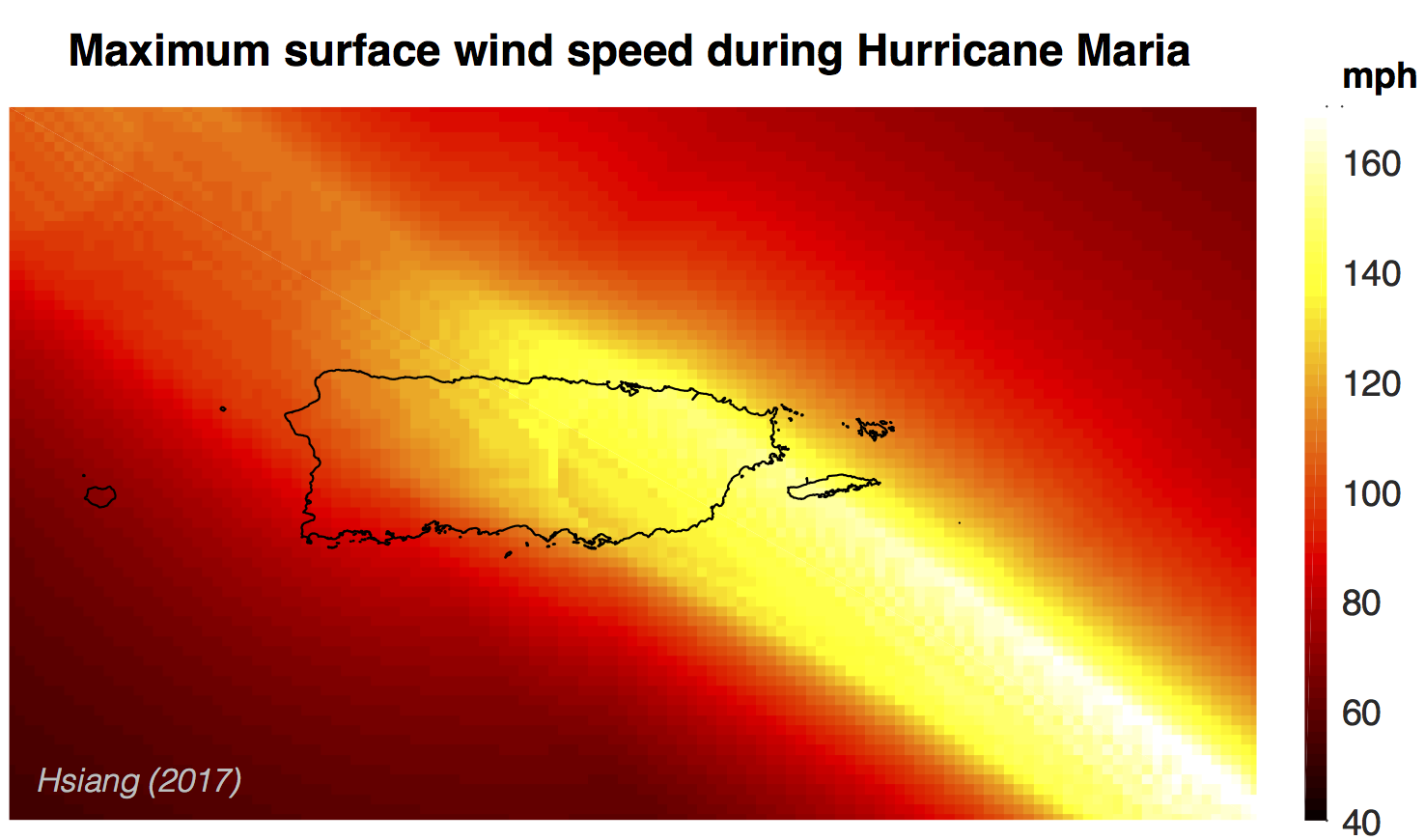Tatyana Deryugina and Solomon Hsiang have a new NBER working paper out titled "The Marginal Product of Climate". The analysis develops a formal theory for how overall economic productivity due to the climate should be valued, accounting for the fact that populations adapt to changes in their climate. They apply their approach to data on the United States and estimate that "business as usual" warming is worth roughly $6.7 trillion in foregone production within the US market economy.
Read the paper here.











